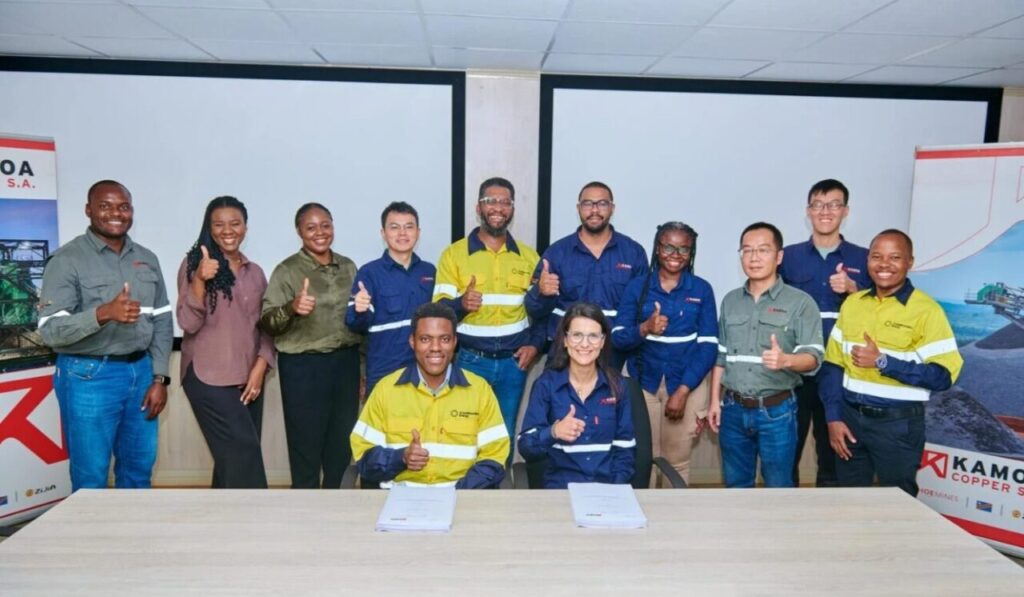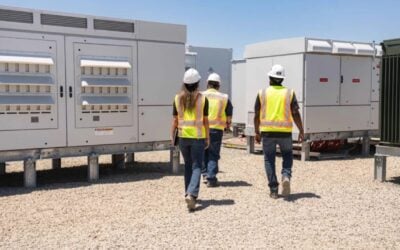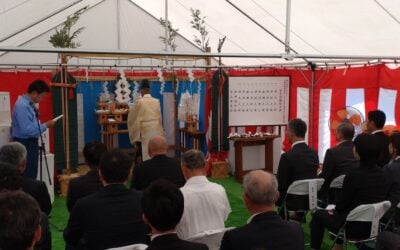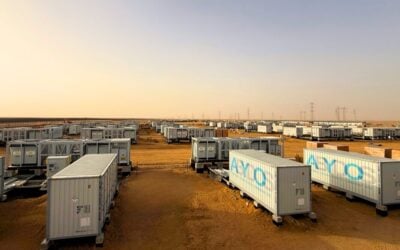
Mining consortium Kamoa Copper and IPP CrossBoundary Energy have agreed on a PPA providing baseload renewable energy for one of the largest copper mines globally, in the Democratic Republic of the Congo (DRC).
The companies have signed the power purchase agreement (PPA) for 30MW of dispatchable renewable baseload power from a 222MWp solar PV, 526MWh battery energy storage system (BESS) project. The BESS has a megavolt-amperes (MVA) rating of 123.
Enjoy 12 months of exclusive analysis
- Regular insight and analysis of the industry’s biggest developments
- In-depth interviews with the industry’s leading figures
- Annual digital subscription to the PV Tech Power journal
- Discounts on Solar Media’s portfolio of events, in-person and virtual
The PPA will service Komoa Copper’s Kamoa-Kakula copper mining complex, one of the largest in the world, near Kolwezi in the DRC. Its copper production capacity is around 600,000 tonnes annually, and the ramp-up of a new on-site direct-to-blister copper smelter is expected to start in Q2 2025.
The solar-and-storage plant will reduce carbon emissions by 78,750 tonnes per year by offsetting fuel generators. CrossBoundary Energy will own and operate the plant, and Kamoa Copper will pay for the energy it consumes.
Kamoa Copper S.A. is a joint venture (JV) between mining companies Ivanhoe Mines and Zijin Mining Group, and the Government of the DRC, which owns a 20% stake.
The companies claimed it is the first project of its kind in Africa. Many mines have incorporated solar PV and BESS into their operations, but baseload, 24/7-guaranteed power is rare for solar PV and BESS because of intermittency concerns, the announcement said.
“However, due to the increasing efficiency of solar PV and the declining cost of BESS components, a renewable baseload system is now viable and cheaper than the diesel generators currently providing power to the mine,” it said.
Matthew Tilleard, managing partner at CrossBoundary Energy, commented: “Africa’s most significant hindrance to growth and investment is access to reliable and affordable power. Projects like these prove that distributed clean energy can now provide cheaper baseload power, even for heavy industry.”
Franck Alloghe, business development director at CrossBoundary Energy added: “This agreement represents a change in energy supply for mining operations, indicating that diesel or HFO generators are no longer the only viable option for guaranteed baseload power generation.”
Energy-Storage.news reported on a hybrid renewables and BESS project serving a mine in Australia back in 2021. More recently, CrossBoundary Energy raised US$25 million for microgrids in Africa and agreed to deploy a solar-and-storage plant to serve a gold mine in Sierra Leone, as reported by our colleagues at PV Tech.






